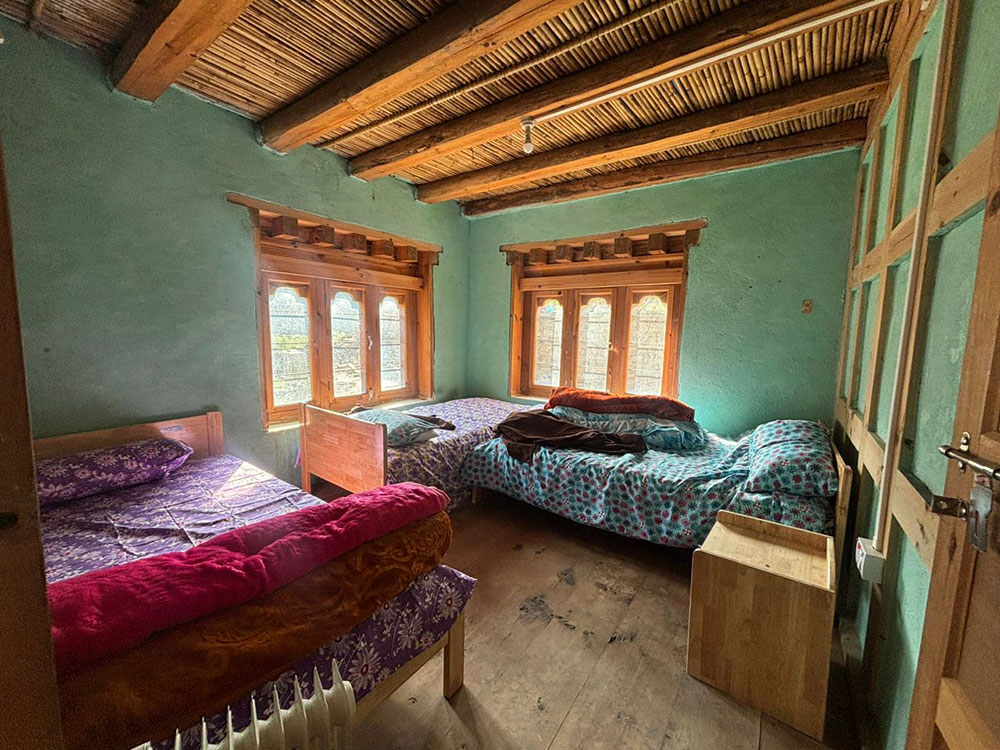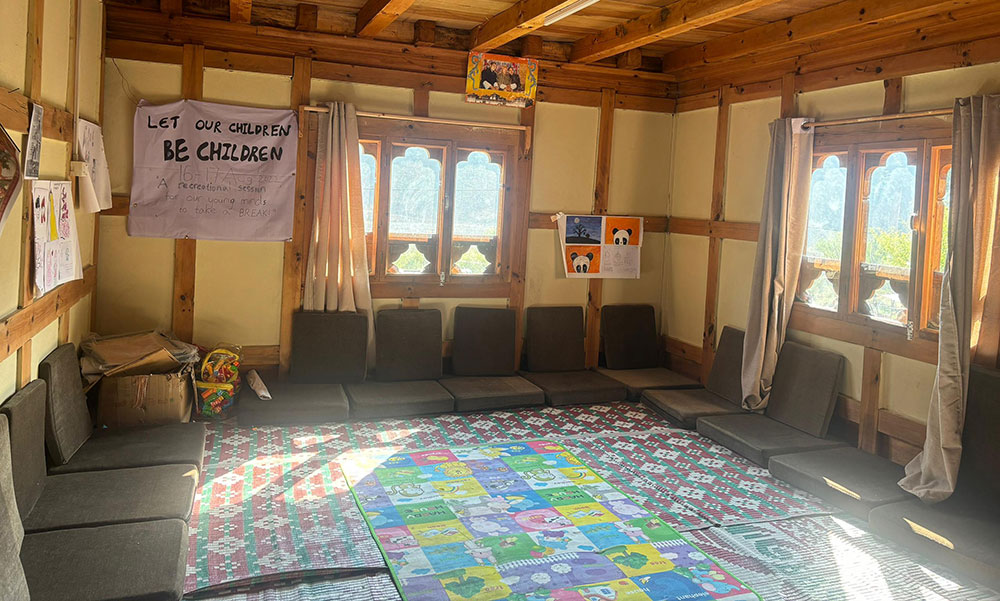Yangyel Lhaden
Bumthang—Over the past two years, the community service centre operated by Respect, Educate, Nurture, and Empower Women (RENEW) in Jalikhar, Bumthang has assisted over 100 cases of gender-based violence (GBV).
The centre here is among the initial three centres in the dzongkhags. Its establishment was prompted by the notable number of reported cases within these areas. Currently, there are 10 centres in the country.
The infrastructure for the community service centre in Bumthang was provided by the Bumthang Dzongkhag Administration, while its operational expenses are covered by funding from UNICEF.

Safe home for survivors requiring shelter services at the centre

Child-friendly room at the centre
The Centre features a two-story building. The ground floor serves as a safe shelter with bedding and pillows. It offers immediate support and overnight shelter for survivors in need.
The second floor houses an office furnished with informative postcards about RENEW, its services, and various topics including GBV, domestic violence, and female reproductive health, among others.
There is also a child-friendly room equipped with toys and drawing facilities.
This space is designed for clients experiencing domestic violence who often come with their children.
Here, children can engage in activities while their parents seek services.
A poster in the child-friendly room carries the message, “Let our children be children,” and the walls are adorned with artworks created by children.
The centre is staffed by two individuals: Pushpan Chhetri, who serves as the case manager, and Priya Ghalley, who fulfils the role of centre manager.
How does the centre function?
Initially, they began by informing taxi drivers about the centre’s location. They also actively participate in community advocacy programmes, promoting awareness about RENEW’s services and advocating for individuals affected by violence, among other issues.
In Pushpan Chhetri’s office, there are A4-sized printouts listing points she should keep in mind when interacting with her clients.
Some of these reminders posted on the wall include ensuring accountability, seeking informed consent and/or informed assent, and facilitating meaningful participation, which includes involving children in decision-making processes.
“Some clients can be challenging, but it all depends on how we approach them,” Pushpan Chhetri said. “The reminders on the wall help me provide better services to the clients.”
Priya Ghalley said that most clients who come to the centre belonged to low education backgrounds and were mostly victims of emotional violence. “We also receive cases from men, but there are more reported cases involving women and children.”
In its inaugural year, the centre documented cases involving adults as follows: 13 cases of physical abuse against females, five cases of emotional abuse against males and 24 against females, one case of economic abuse or neglect involving men and seven involving women, along with 27 non-GBV cases.
In the same period concerning children, the centre documented five cases of physical abuse involving girls, four involving boys, two cases of emotional violence against girls, two cases of sexual abuse, and two cases of neglect involving girls.
As of April 23rd, 13 clients have sought assistance at the Centre this year. Priya Ghalley said, “We typically receive a minimum of three and a maximum of seven cases per month.”
“The challenge we face here is that RENEW is the only non-governmental organisation, and sometimes services could be delayed. For example, if our client is a person with a disability,” Priya Ghalley said. “I know how to deal with a person with a disability to some extent, but for severe cases, we need to refer them, which could affect providing timely services.”
The RENEW centre in Bumthang also offers livelihood training based on community needs. It has provided training in tailoring, mushroom cultivation, and felting to the community.


